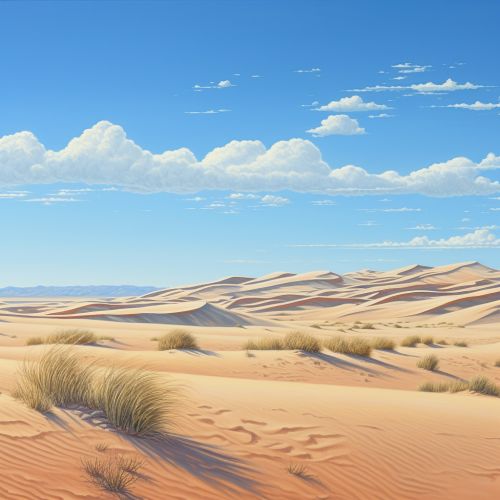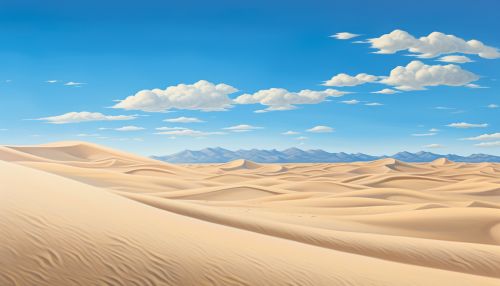Algeria
Geography
Algeria, officially known as the People's Democratic Republic of Algeria, is the largest country in Africa and the 10th largest in the world. It is located in the northern region of the African continent. The country is bordered to the northeast by Tunisia, to the east by Libya, to the west by Morocco, Western Sahara, and Mauritania, to the southwest by Mali, to the southeast by Niger, and to the north by the Mediterranean Sea.


The country spans a total area of 2,381,741 square kilometers, with a diverse landscape that includes coastal plains, mountain ranges, and vast desert areas. The northern part of the country is characterized by the Atlas Mountains, which extend from the Moroccan border to the Tunisian border. The southern part of the country, on the other hand, is dominated by the Sahara Desert, the world's largest hot desert.
Climate
Algeria's climate varies greatly from region to region. The coastal region has a Mediterranean climate, with mild, wet winters and hot, dry summers. The interior highlands experience more extreme seasonal variations, with cold winters and hot summers. The Sahara region is characterized by an arid desert climate, with extremely hot summers, mild winters, and very little rainfall throughout the year.
History
Algeria has a rich and complex history that dates back to prehistoric times. The country was first inhabited by Berber tribes, who have left a lasting legacy in the form of ancient cave paintings and architectural ruins. The Berbers were later conquered by a series of foreign powers, including the Phoenicians, the Romans, the Byzantine Empire, the Arab caliphates, and the Ottoman Empire.
In the 19th century, Algeria was colonized by France, marking a period of intense cultural and political change. The French rule lasted for more than a century, during which the Algerian people faced significant oppression and hardship. This period culminated in the Algerian War of Independence, a brutal and bloody conflict that lasted from 1954 to 1962 and resulted in Algeria gaining its independence.
Politics
Algeria is a semi-presidential republic, with the President serving as the head of state and the Prime Minister serving as the head of government. The political system is characterized by a multi-party system, although the military has historically played a significant role in the country's politics.
The country's legal system is based on French and Islamic law. The judiciary is independent, and the Constitutional Council is responsible for overseeing the constitutionality of laws and regulations.
Economy
Algeria's economy is heavily reliant on revenues from oil and gas exports, which account for the majority of the country's income. The country is the third-largest supplier of natural gas to Europe, and it has the 10th largest reserves of natural gas in the world.
Aside from hydrocarbons, Algeria's other major industries include agriculture, manufacturing, and services. The government has implemented various economic reforms in recent years to diversify the economy and reduce its dependence on oil and gas.
Culture
Algerian culture is a rich blend of Berber, Arab, French, and other influences. The country's cultural heritage is reflected in its literature, music, art, and cuisine. Algeria is known for its traditional Berber music, known as Kabyle music, and its popular folk music, known as Rai music.
The country's cuisine is heavily influenced by Berber, Arab, and French culinary traditions, with dishes such as couscous, shawarma, and tajine being staples of the Algerian diet.
